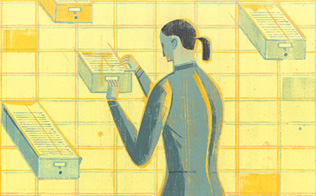Multimedia

The Synthetic Biology project recently received two grants from the National Science Foundation to support a Transatlantic Exploratory Workshop on the Implications of Cutting-Edge Biotechnologies for Sustainability Science and Policy, and research on the use of on-line prediction markets to explore emerging issues in synthetic biology.
David Rejeski discusses "Public Perceptions On The Technological Frontier" at the National Academies.
Synthetic Biology Project director discusses opportunities and challenges of synthetic biology on The Kojo Nnamdi Show (NPR).
A new interactive map shows a growing landscape of synthetic biology activity throughout the United States and Europe.
"Laws like the Toxic Substances Control Act and Federal Food, Drug, and Cosmetic Act simply were not designed to handle 21st century advances.," contends Michael Rodemeyer in his new report, New Life, Old Bottles...
The safety of early applications of synthetic biology may be adequately addressed by the existing regulatory framework for biotechnology, but further advances in this emerging field are likely to create significant challenges for U.S. government oversight, according to a new report.
Synthetic biology promises to enable cheap, lifesaving new drugs to treat the 350-500 million people who suffer from malaria, and to create innovative biofuels that can help solve the world’s energy problems. But are synthetic biologists playing God? Will synthetic biology’s expected products and profits be stymied by policymakers and the public?
The Synthetic Biology Project is being launched to identify gaps in our knowledge of the potential risks of the field, explore public perceptions towards it, and examine governance options that will both ensure public safety and facilitate innovation. Take the quiz! Winners Announced!
Synthetic biology is being touted by scientists and venture capitalists as “the next big thing.” Researchers claim to be on the brink of creating artificial life in a laboratory and making the world’s first synthetic microbes. But will the promises and pitfalls of synthetic biology catch governments, ethicists, experts, and the public by surprise?
Mechanical engineers use off the shelf tools and components to create their products, and in Jay Keasling’s vision, genetic engineers will one day soon have similar resources at their disposal.
Nanotechnology and synthetic biology are two of the most exciting fields in science. They are the focus of venture capitalists, government and university laboratories, major corporations, and startup companies. But how much have Americans heard about these two fields that promise to change virtually every aspect of their lives?
A groundbreaking poll has found that nearly nine in 10 Americans say they have heard just a little or nothing at all about the emerging field of synthetic biology. This new insight into limited public awareness of emerging technologies comes on the cusp of a major leadership change in the nation’s capital.